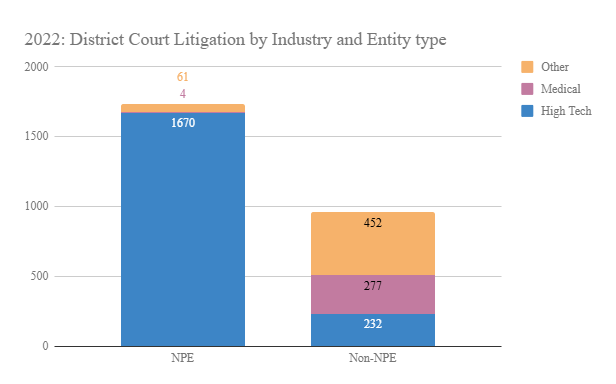Patent Trolls: A Menace for Innovators
- katherinettaylor
- Feb 18
- 3 min read
Updated: Feb 22
Patent trolls—aka Non-Practicing Entities (NPEs)—don’t invent or build anything. Instead, they hoard patents and use them as legal weapons, suing businesses for “infringement” on vague claims. The result? Massive legal bills, wasted time, and innovation held hostage.
How They Hurt SMEs: SMEs are prime targets. A single lawsuit can cost hundreds of thousands—money better spent on R&D, hiring, or actually growing a business. Many SMEs settle just to avoid the financial drain, even when they’ve done nothing wrong. Patent trolls account for nearly 60% of all patent-related litigation.
Stronger Protections in Australia vs. the U.S. In the U.S., patent trolls thrive on legal loopholes, making it a hotbed for frivolous lawsuits. This creates a chilling effect on innovation, discouraging businesses from taking risks.
Australia, on the other hand, has stronger protections. The law allows businesses to challenge baseless patent threats, and companies hit with dubious lawsuits can take legal action to invalidate the claims—potentially even receiving compensation for damages. This makes Australia a much tougher environment for patent trolls, reducing their ability to disrupt innovation.
Fighting Back with Industry Initiatives Several organizations are working to protect businesses from patent trolls and improve patent quality. They offer different strategies to tackle the problem:
Unified Patents: Focuses on deterring patent trolls through legal challenges, prior art searches, and industry-wide collaboration. They actively challenge weak patents before they can be used against businesses.
Allied Security Trust (AST): A member-driven cooperative that purchases patents to prevent them from falling into the hands of patent trolls. Members pool resources to finance these acquisitions.
RPX Corporation: Offers a subscription-based service where members gain access to a portfolio of patents, reducing the risk of litigation.
Open Invention Network (OIN): Protects open-source technology, particularly Linux, by acquiring patents and offering them royalty-free to prevent legal threats.
LOT Network: Helps prevent patent assertion entities (PAEs) from using acquired patents against businesses. Members agree that if their patent is sold to a PAE, all other members receive a free license.
How These Organizations Work Each of these initiatives provides businesses with tools to navigate the complex patent landscape:
Organization | Approach | Key Benefit |
Unified Patents | Legal challenges and prior art searches | Eliminates weak patents before litigation starts |
Allied Security Trust (AST) | Patent acquisition to prevent misuse | Blocks trolls from weaponizing patents |
RPX Corporation | Patent licensing and risk management | Reduces exposure to costly lawsuits |
Open Invention Network (OIN) | Protects open-source tech from patent aggression | Safeguards Linux and related technologies |
LOT Network | Free licensing to members if a patent is acquired by a PAE | Neutralizes patent threats before they escalate |
Why It Matters When patent trolls lose, real innovators win. Less legal uncertainty means more startups taking risks, launching products, and pushing technology forward. Companies that settle or lose to patent trolls in court reduce their R&D investment by an average of over $160 million in the following two years.
The Takeaway? Don’t let patent trolls scare you into silence—turn the tables on them! Support initiatives like Unified Patents, AST, RPX, OIN, and LOT Network. Better yet, if you’ve got knowledge that can take down a bad patent, why not go for a bounty? Your insights could earn you a reward while helping to keep the innovation landscape clear for real inventors. A stronger, troll-free ecosystem benefits everyone—so take action!





Comments